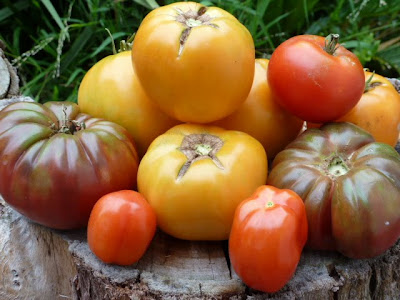
 Three weeks later
Three weeks later Three weeks later, we opened up the box and had a look at the honey flow and how the brood was developing...
Three weeks later, we opened up the box and had a look at the honey flow and how the brood was developing...Adrian's bee keeping intro course from Keith Rhodes on Vimeo.

 Three weeks later
Three weeks later Three weeks later, we opened up the box and had a look at the honey flow and how the brood was developing...
Three weeks later, we opened up the box and had a look at the honey flow and how the brood was developing...Adrian's bee keeping intro course from Keith Rhodes on Vimeo.

 |
| Flemmington Community Garden |
 |
| Meristem nursery |
 Sunday
Sunday Been busy grubbing up a tree root - lots and lots of digging around and chain sawing
Been busy grubbing up a tree root - lots and lots of digging around and chain sawing


 A new (old) wood heater, only uses timber left on suburban nature strips by tree loppers.
A new (old) wood heater, only uses timber left on suburban nature strips by tree loppers.

 What happened here? This throw back is a half tomato, half capsicum. Tastes okay, but I think I prefer one or the other.
What happened here? This throw back is a half tomato, half capsicum. Tastes okay, but I think I prefer one or the other. 
 Chooks (the brown one in front especially) wake us at 6.30 sunrise. They wait at the gate to come bursting out.
Chooks (the brown one in front especially) wake us at 6.30 sunrise. They wait at the gate to come bursting out.  A better use for seaweed than the garden...
A better use for seaweed than the garden... 
Here's some of this year's tomatoes. Mostly heritage varieties. The dark red ones are Black Crim. As with the yellow ones, they're very meaty compared to those commercially grown.
I recently found the pressure cooker discarded on the nature strip. I had been thinking of getting one, so I couldn't believe my luck. The soup took just 15 minutes cooking time, so it's a great energy saver. Here's the recipe. It does a great goulash in 45 minutes instead of four hours also.
On another topic, yes, it was a great weekend (18/2/11) at the Sustainable Living Festival. The theme that came through for me though, is how much time we've lost talking about but not dealing with Climate Chaos. Now we need to get to zero emissions in 10 years! Beyond Zero Emissions suggests how it can be done. Not sure I have much hope though. This podcast by Clive Hamilton shows how the debate is not about the science. Those on the right of politics have taken a sceptic 'position' against what they percieve as the environmental/ left wing gang.
John McKenzie at the Permaculture Melbourne stall, SLF, 19/2/11. Thanks for organising it John!







